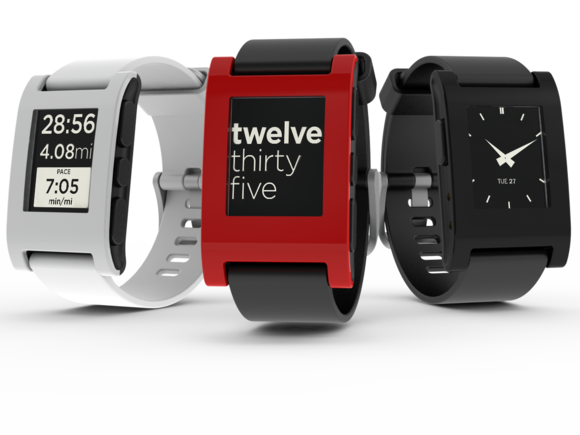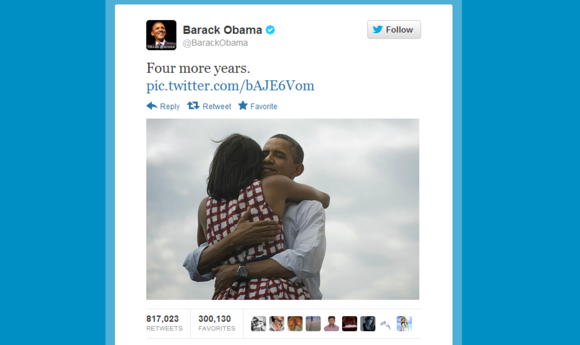
Singling out the 10 most significant news stories of 2012 was no easy task—but we did it nonetheless. And did we leave something out? Share your thoughts in the comments!
Windows 8 makes its debut
The biggest news this year was, of course, the release of Windows 8, which brought renewed energy to the PC ecosystem, along with more than its fair share of controversy—not the least of which was Microsoft's matter to take hardware matters into its own hands with the launch of its self-made Surface tablet.The move represented a new willingness on the part of the software giant to compete directly with the OEMs that have traditionally been Microsoft’s closest allies. Fears from Microsoft's OEM partners seem to be playing out, with the Surface RT snagging the lion's share of the (lackluster) early Windows RT tablet market. The Surface doesn’t look to be a one-off excursion for Microsoft, either. The company's latest shareholder letter makes explicit that hardware is going to be a part of Microsoft’s future, for better or for worse.

Adding to the drama, Steven Sinofsky, president of Microsoft’s Windows division, left the company just weeks after Windows 8’s launch. Did he quit or was he fired? Neither party is telling. Though reports claim Sinofsky’s exit had to do with his prickly management style than the success or failure of Windows 8, the departure didn’t help public perception of Microsoft’s fortunes so soon after the controversial operating system's launch.
Apple vs Samsung: Year two fallout

Samsung won back a minor victory when the court denied Apple’s request for a permanent injunction forbidding the sale of several Samsung devices. Apple took another major blow as the US Patent Office tentatively declared the “Steve Jobs patent,” which covers—broadly—gesture control on a touch screen, invalid.
The Apple-Samsung lawsuits are ongoing in countries all across the globe, and we’re sure there will be more bombshells to talk about at the end of 2013.
Megaupload gets shut down
In January, Megaupload was wiped off the face of the Internet, its domain names seized, assets confiscated, and founders imprisoned by New Zealand police acting on behalf of the US government. The popular filesharing site’s closure started a firestorm on the internet, spurring the “hacktivist” group Anonymous to launch a successful denial-of-service attack against the Deparment of Justice, the RIAA and others. The site’s closure had a domino effect , causing many other “cyberlocker” sites—including FileSonic, Uploaded.to, UploadBoc, FileJungle and FileServe, amongst scads of others—to either clamp down on file sharing or preemptively shut down their entire service, fearing similar government action.The debate over SOPA, the much-maligned internet piracy act, was raging at the time, and MegaUpload’s closure led many to question whether the act was even necessary if the US government already had the wide-ranging power necessary to take down a Hong Kong-based company run by New Zealand nationals.

Facebook: public offerings and privacy concerns
Of course, Facebook’s been kind of a big deal for a long time now, but 2012 marked the year that the social network became the publically-traded corporation that everyone loves to hate. The company's blockbuster billion-dollar IPO in May was plagued by technical difficulties , and the Facebook's stock value slumped to around half its initial $38 per-share price over the following three months. Facebook’s market worth has recovered since then, but still hasn’t come close to meeting launch day numbers.The IPO came just a month after Facebook announced its biggest acquisition ever, picking up photo sharing app Instagram for a cool $1 billion. At the time, both companies were insistent that Instagram would remain an independent service, but the photo app has recently had its first Facebook-esque privacy flap.
Speaking of privacy flaps, Facebook capped off a controversial year with the decision earlier this month to eliminate user voting on privacy issues and site governance, provoking a predictable (and predictably unfruitful) public outcry.
Apple loses its edge in online maps

Users, it turns out, aren’t fond of having something they’re used to taken away and replaced with a shoddy alternative. The uproar was swift and sustained—enough that Apple CEO Tim Cook released a public statement apologizing for the app’s shortcoming and suggesting that users try downloading a different map app from one of their competitors.
iPhone users finally regained access to the maps they had come to love when Google released an official maps app into the iOS app store in mid-December. That’s got to be a relief to Aussies, who had been warned just days before that Apple Maps’ inaccurate directions could send them on a potentially-fatal trip into the outback.
Kickstarter and the meteoric rise of crowdfunding

Seemingly overnight, Kickstarter, Indiegogo and other crowdfunding sites have become the go-to source of cash for projects too hip for old-fashioned venture capital. Our only question: how many of this year’s funding success stories are going to become next year’s vaporware?
The Department of Justice sues pretty much everybody over e-book price fixing

Apple allegedly encouraged the move, wanting to secure higher 30 percent margins on e-book sales rather than being forced to lower prices with competitors like Amazon, who were all too willing to offer e-books at lower prices (and lower margins). Under agency pricing, the cost of best-selling e-books leaped from Amazon's early $9.99 selling price to between $12.99 and $14.99
The Department of Justice was none too fond of this “collective effort to end retail price competition by coordinating their transition to an agency model across all retailers,” which would assuredly result in higher prices for consumers. The DoJ filed suit against 5 major publishers, as well as Apple, who was accused of colluding with the publishers out of a desire to raise profit margins on e-books. HarperCollins, Simon & Schuster and Hachette agreed to settle right away, while Penguin agreed to the DoJ's terms in December. Apple and Macmillian continue to fight the case in court.
Twitter’s big year
Twitter had another banner year, repeatedly setting and breaking records for volume of tweets—first during the London Olympics and then during the presidential election, which saw a peak of 327,452 tweets per minute and the most retweeted picture of all time. The service also passed 500 million total users and 200 million active users in 2012, and it introduced the “cards” API that allows companies to automatically add multimedia elements when someone tweets a link to their site—all with barely a Fail Whale to be seen. Even the Pope signed up for a Twitter account in 2012.
The microblogging service was also on the receiving end of heavy-handed corporate policy this year, as Instagram (now owned by Facebook) shut off Twitter integration, making it impossible for users to post Instagram photos directly into their Twitter feeds . The very next day, however, Twitter outed native photo filters of its own, somewhat—somewhat—softening the blow for people who love to take pictures of bicycles leaning against lamp posts in the rain.
Yahoo's executive turmoil
If any tech company needs a strong hand at the helm, it’s Yahoo. The company still owns one of the most visited sites on the planet, but its future strategy is unclear. That’s what the firm was hoping for when they hired on Scott Thompson shortly into the new year—but it’s not what they got.Thompson, who took over for an underperforming Carol Bartz, didn’t even last half a year. He was fired in May for faking an entry on his resume, prompting five board members to resign their position early and leading Yahoo to begin its search for its fifth CEO in as many years.
That search ended in July, with the announcement that Marissa Mayer—long a public face at Google—would take the helm. In the months since, she's instituted morale-boosting initiatives such as free lunches, free phones, and all-hands meetings on Fridays. The spirit-lifting seems to be paying off; in December, Yahoo launched a new Flickr app and a streamlined Yahoo Mail refresh, dragging the two formerly stodgy offerings kicking and screaming into modern times.
Google gets into tablets

The Nexus 10, on the other hand, delivers an iPad Retina display-beating 2560 x 1600 resolution and similarly beefy internals for just $400. In other words, Google's thrusting tablets forward while driving prices downward across the board.
Sign up here with your email
ConversionConversion EmoticonEmoticon